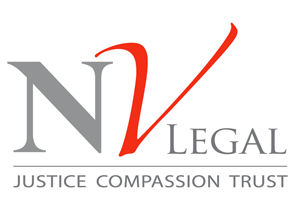Psychological injury claims
If you have been involved in an accident or injury the physical injuries are often obvious. However, in many of our cases there is a psychological component which, although not visible, can be as debilitating.
Compensation is available for psychological injuries and rehabilitation for conditions such as anxiety, adjustment disorders, depressive disorders and Post Traumatic Stress Disorder (PTSD). If liability is admitted the third party insurer will often fund the treatment.
Often clients have no alternative but to obtain the treatment privately as Cognitive Behavioural Therapy (CBT) or Eye Movement Desensitisation Reprocessing (EMDR) is rarely available on the NHS due to the lack of resource and associated costs.
In our experience, if treatment is available on the NHS, the waiting lists are so lengthy that by the time treatment takes place symptoms have either subsided, taking much longer to resolve than if treatment had been received earlier, or at the other end of the spectrum the symptoms have become chronic and potentially permanent. Early diagnosis and treatment is essential.
What is classed as a psychological injury?
PTSD claims are becoming more common. Once associated with roles such as armed forces, firefighters, police or accident and emergency staff, claims have been submitted in cases such as workplace bullying, highly stressful jobs and overwhelmed staff.
Psychological injuries can occur after any traumatic event such as being involved in a road traffic accident, traumatic injury at work or witnessing a distressing scene.
What are the symptoms?
Symptoms can vary depending on the injury such as depression, anxiety or PTSD. Common symptoms associated with psychological cases include difficulty sleeping, loss of appetite, mood swings, irritability, flashbacks, nightmares, anger, guilt, grief, dizziness, heart palpitations and panic attacks.
Receiving help
Your first port of call should be your GP. However, you can refer yourself directly to a psychological therapy service without seeing your GP. These offer therapies such as CBT for common problems such as stress, anxiety and depression. For more information on self-referral CLICK HERE
Compensation
You may be entitled to compensation for your psychological injuries. NV Legal is an expert in such cases and we offer a free initial consultation. We only take on cases which we believe will be successful and work on a no-win no-fee basis.
The Judicial College produces guidelines for the assessment of general damages in personal injury cases. The latest 14th edition outlines possible compensation figures for PTSD. The guide states:
“(a) Severe £47,720 to £80,250 £52,490 to £88,270
Such cases will involve permanent effects which prevent the injured person from working at all or at least from functioning at anything approaching the pre-trauma level. All aspects of the life of the injured person will be badly affected.
(b) Moderately Severe £18,450 to £47,720 £20,290 to £52,490
This category is distinct from (a) above because of the better prognosis which will be for some recovery with professional help. However, the effects are still likely to cause significant disability for the foreseeable future. While there are awards which support both extremes of this bracket, the majority are between £22,930 and £29,590 (£25,220 and £32,550 accounting for 10% uplift).
(c) Moderate £6,520 to £18,450 £7,170 to £20,290
In these cases, the injured person will have largely recovered and any continuing effects will not be grossly disabling.
(d) Less Severe £3,150 to £6,520 £3,460 to £7,170
In these cases, a virtually full recovery will have been made within one to two years and only minor symptoms will persist over any longer period.”
USEFUL LINKS:
The HSE guide – Tackling work-related stress
The Mental Health Foundation has a wide range of publications available
NHS Guide on ‘Coping with stress following a major incident’


